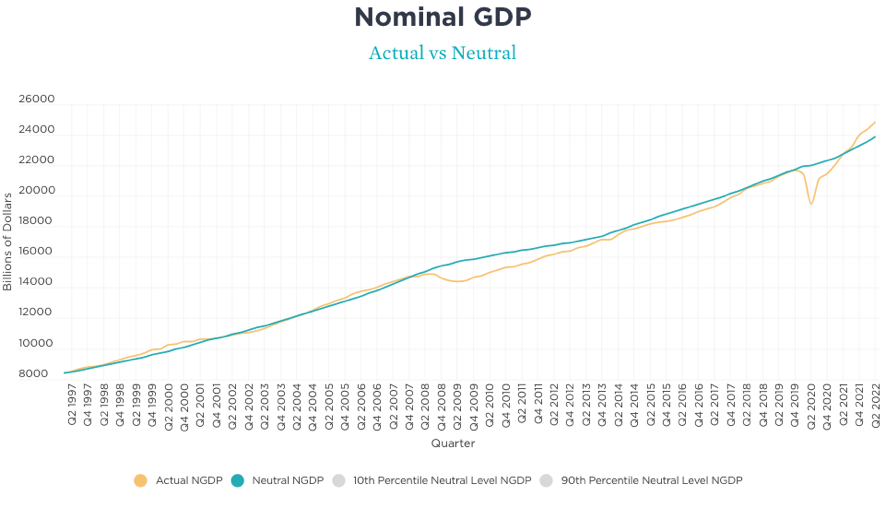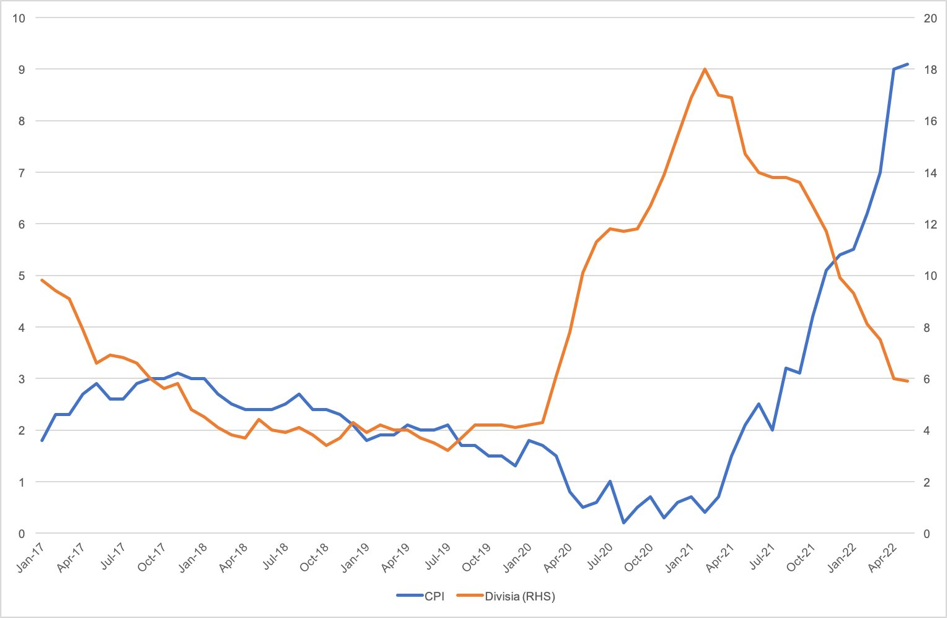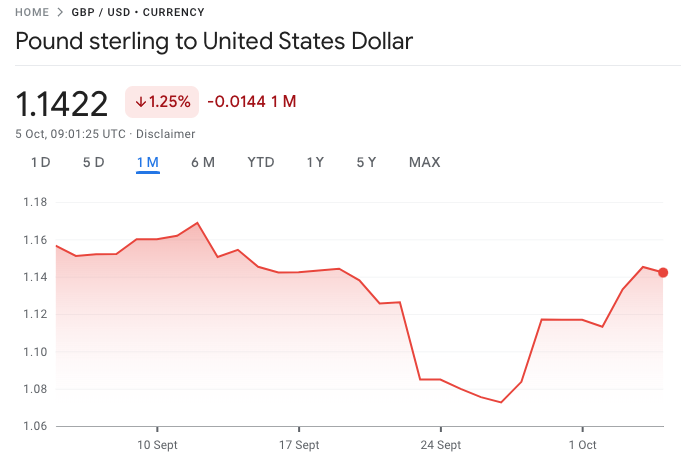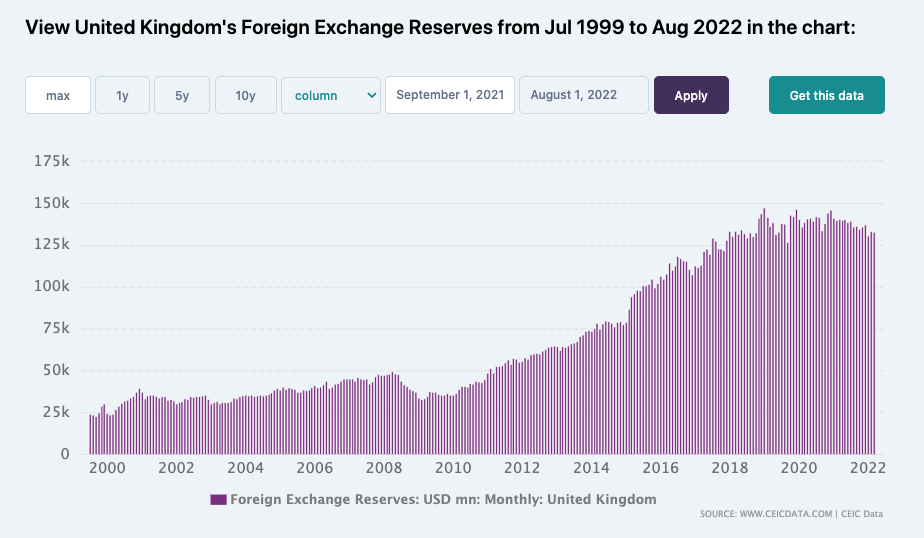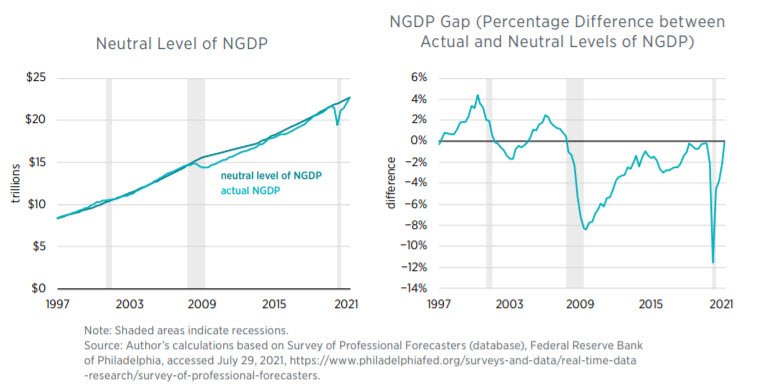I find it hard to pay close attention to President Trump’s reckless and illiterate actions but there’s no doubt that his “liberation day” tariffs are the biggest act of economic self harm since the Great Depression, and we should spend time trying to understand them.
My first response was to question whether Trump had the authority to do this. Surely the whole point of the US Constitution is to protect Americans from the whims of a single person? Indeed, Ilya Somin has made the case that the tariffs are illegal:
[the International Emergency Economic Powers Act of 1977 (IEEPA)] can only be used if… the emergency is over an issue that poses "unusual and extraordinary threat"… There is nothing unusual and extraordinary about [trade deficits]… nor do they pose any real threat.
So although the President has the power to declare a national emergency, this clearly isn’t one. While we may hope that sanity will ultimately prevail, that won’t unwind the damage that has already been done. Both in terms of the initial shock (around $5 trillion wiped off the S&P 500), potential retaliations, or the lasting consequences of such a large increase in policy uncertainty.
Firstly, let’s understand the core economics. As Alan Cole argues, some countries specialise in producing specific goods or services: Madagascar is great at growing vanilla. But they are a relatively poor island nation and do not constitute a major source of demand for American exports. Australia, by contrast, is a high income country with people wanting to buy high value aircraft and subscriptions to entertainment streaming services. American companies do well selling into that market. Australia is also very good at producing metals, but given how heavy and far away they are it makes little sense for Americans to import from them. In a world without money, economic trade would be based on barter and therefore everyone would have an equal trade balance with everyone else. Americans would need to find something they can sell to Madagascans if they want to consume delicious vanilla beans. And their exports of Netflix documentaries would be constrained by how much expensive metal they wished to buy. The reason why money is so useful is because it means we don’t have to settle for bilateral trade balances, and can instead benefit from specialisation: it makes economic sense for Americans to have net imports with Madagascans and net exports with Australians.
One might worry about having a negative trade balance overall, and being a net importer relative to the world as a whole. But this isn’t resolved by eliminating all bilateral trading deficits. And even if it were, these negative trade balances are not tariffs. The amount of money that American consumers voluntarily send to Madagascar in exchange for vanilla beans is not a reflection of “unfair” trade practices. It is not because the Madagascan government is aiding and abetting their domestic industry that American vanilla farmers struggle to compete internationally. Tariffs are bad, and should be cut where possible. And tariffs can affect the trade balance. But it makes no sense to treat the trade balance as a way to measure tariffs.
So what’s going on? Some of my academic research relates to the importance of ideological factors in explaining political leadership and while Trump is not ideological, we can try to make sense of the thought process underpinning his actions. Trump’s main fallacy is equating a trade deficit with an unhealthy economic relationship. But Steve Davies has argued that:
People saying correctly that Trump's tariffs are economically nuts miss the point. This is a political project. The principle of neomercantilism is that economic exchange should be subordinate to political ends. It is a collectivist political economy (nationalist).
I think this is correct, but even though there’s no point trying to make economic sense out of the tariffs, the calculation methods do reveal two very important things: (1) economic logic has been thrown out the window; (2) this is policymaking by AI.
Let’s consider those “reciprocal” tariffs (full list here):
On X/Twitter, @orthonormalist seemed to be the first person to work out the rationale (summarised by @Geiger_Capital here):
It’s simply the nation’s trade deficit with us divided by the nation’s exports to us.
White House Deputy Press Secretary Kush Desai pushed back, saying this was incorrect and the calculations were based on this seemingly more complex formula.
Bear in mind that a country’s exports (x) minus their imports (m) is also known as their “trade deficit” and that we need to be consistent about whether we’re looking at the perspective from the US or the country we’re imposing a tariff on. Then, when you consult the official “Reciprocal Tariff Calculations” you find that:
The price elasticity of import demand, ε, was set at 4
The elasticity of import prices with respect to tariffs, φ, is 0.25
So it isn’t just that the analysis is economically nonsensical, these clowns don’t even understand what they are doing! Possibly because they outsourced the exercise to a LLM, which also explains why many locations that aren’t countries, but do have their own IP configuration, were included.
Clearly, the values for ε and φ are crucial. The official document uses a paper (Cavallo et al, 2021) as justification for φ being “low” but don’t provide that citation in the references. I assume that this is the paper the White House were referring to, but it finds that:
tariffs passed through almost fully to US import prices, implying that much of the tariffs’ incidence rests with the United States.
So although tariff passthrough to retail prices might be low (as per the White House), the impact on import prices is much higher. In fact, Kevin Corinth and Stan Veuger argue that the elasticity should be 0.945, not 0.25. This affects the analysis by a factor of 4 and would imply that almost all tariffs should be at the arbitrary and Chat-GPT generated 10% lower bound. Madness.
Consider the following three scenarios:
Trump is an idiot, surrounded by sycophants.
Trump and his team realise they have 2 years to achieve as much of their agenda as possible, and are unleashing a deliberate whirlwind of executive orders to overload the courts and hope that some of it sticks. Ultimately, however, common sense will prevail - a combination of grown ups, special interests, and the legal system will roll back many of the policies and the long term health of the US (and global) economy will depend on his successor.
Trump and his nepotistic cabal are deliberately trying to damage the economy so that they can benefit from having shorted it.
Trump is a Russian agent and is just doing what Putin wants him to.
Something else is going on.
I am not sure which is worse. 1 is Occam’s Razor, and consistent with most of the facts. 2 is perhaps the optimistic take, and I think there is some good evidence in its favour. 3 sounds too much like an unfounded conspiracy theory for me - there are much easier ways for a President to improve their personal finances than via sabotaging their economy (and I don’t deny that Trump isn’t doing these as well) but wiping trillions of the stock market is not consistent with a theory about rich billionaires getting away with whatever they want. I think we should be paying close attention to any evidence in favour of 4, but don’t see how these tariffs benefit Putin per se. If anything - and much more of a concern to me - they benefit China.
This thread by Students for Liberty does a good job of articulating scenario 5, arguing that tariffs are being used by the Trump administration as a way to achieve two objectives: (1) retain the dominance of the dollar as an international reserve currency; (2) improve export competitiveness. Ordinarily countries would use conventional monetary policy tools to walk this tightrope, and it is therefore telling that Trump is publicly calling for interest rate cuts. For now, however, he is forced to use tariffs because he has more control over them. What we are seeing is something common across the world and throughout history:
Tariffs as an important form of tax revenue collection
Fiscal dominance (where political leaders seek to use monetary policy to support their fiscal objectives)
The issue is that these are typically associated with poor, corrupt economies with little state capacity and a lack of independence in important public bodies (such as the central bank). We are not used to such techniques in America.
The final point I wish to make is a broader one. Some people have tried to draw a link between the neoliberal economic doctrine and the rise of the populist right. I wonder what type of intellectual gymnastics are required to maintain the view that MAGA have any intellectual lineage to the “globalists”, now that JD Vance is explicitly justifying trade policy as an effort to retreat from a “globalist” approach. It is also popular to consider America to be an oligarchy, governed by business interests. If that were the case, financial markets would be in charge. Clearly, they’re not. Perhaps America is becoming a plutarchy, or a “tech-bro”-ucracy. But these aren’t variants of capitalism. At their core, the dominant MAGA ideology is now old school Marxism: “pulling for a fundamental remaking of the economy to bring about redistribution of income to the proletariat from the globalist elites. They now hate the wealthy, except those working for Trump…” (h/t Ivan Pongracic on Facebook). Of course, the difference with Marxism is that in a socialist democracy those at the top were supposed to be working in the public interest. And while I think Bernie Sanders has far more integrity than Donald Trump I am not sure how much that matters - this is a populist revolt against the basic rules of global capitalism. It is a radical effort to “bring back” manufacturing and short circuit financial markets. It rejects Economics 101 and the principles of comparative advantage, market prices, and free trade. It is deeply depressing and signals the importance of understanding the basic insights of what constitutes a free society. The collectivists are winning.



















